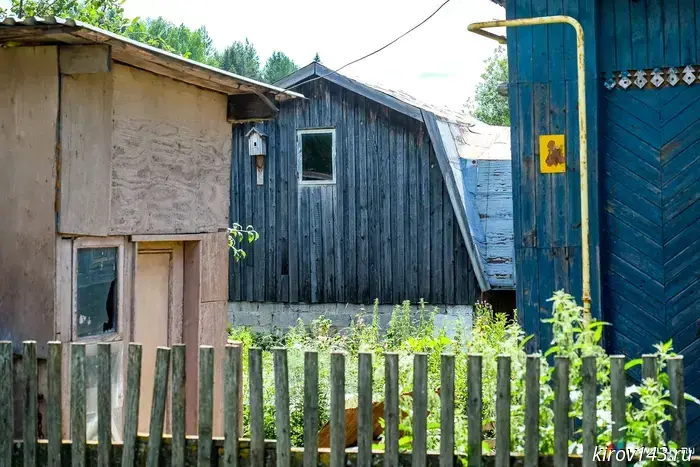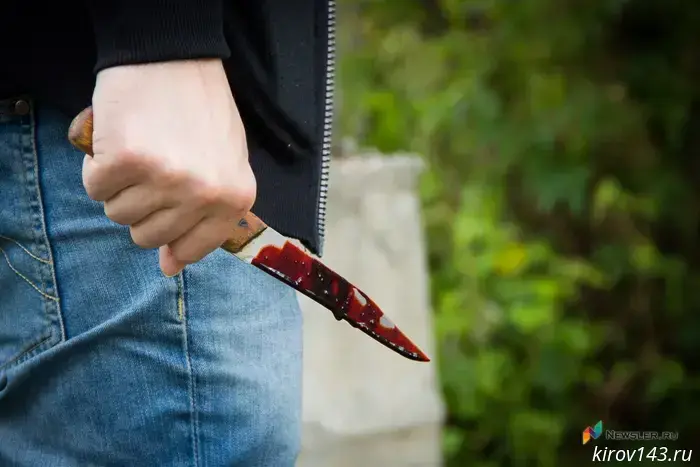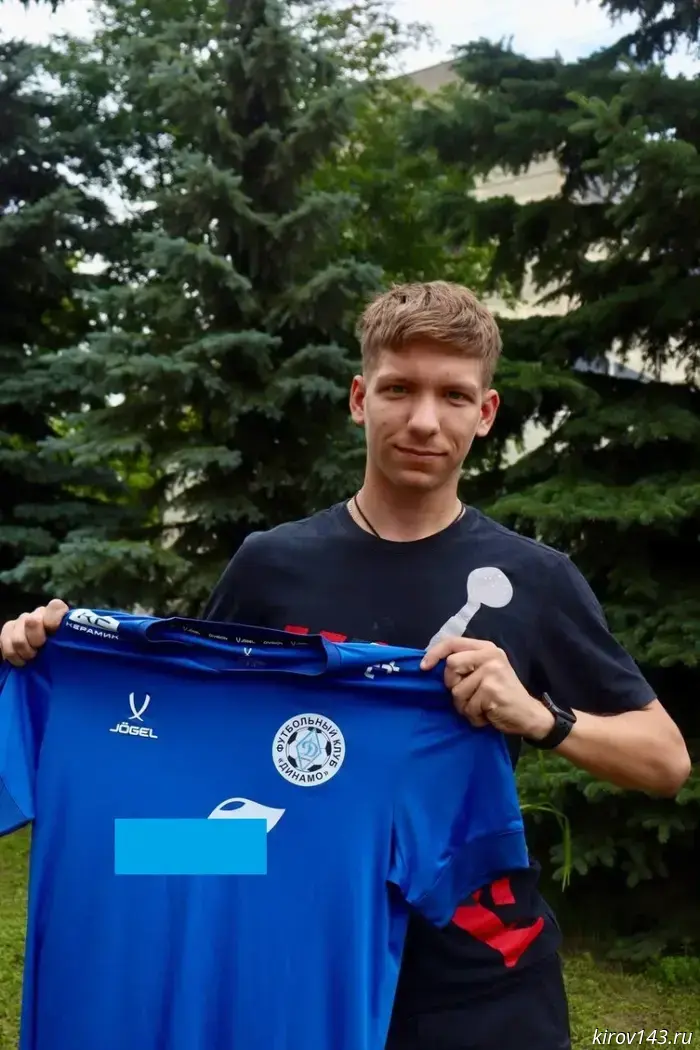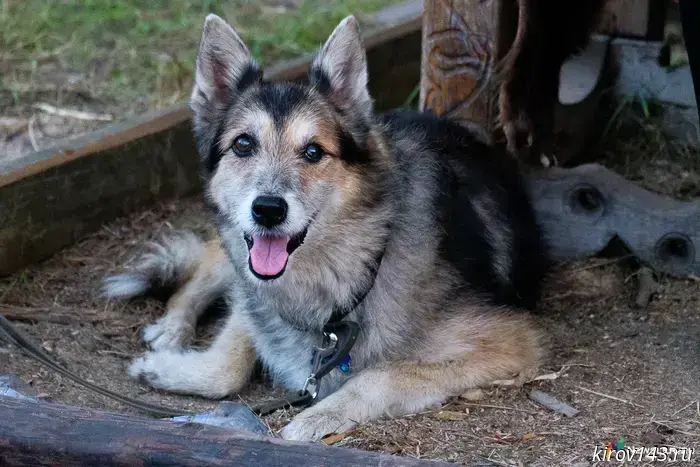
Animals "from hell": where have dozens of four-legged prisoners gone?
As stated in published reports, dozens of goats, cats, chickens, dogs—including seven Pomeranian lapdogs—and a rabbit live on Alla's property in the settlement of Kstinino, Kirovo-Chepecksky District. According to animal rights activists, on Thursday, July 10, Vera, who identified herself as the trusted person of the owner of the yard hospitalized at the time, contacted them for help.
Volunteer Denis arrived at the scene and saw firsthand "hell on earth," which had opened up 20 km from Kirov. "I saw this horror. Vera showed me everything: dead goats, dogs sitting five in a small cage. I helped her carry water and hay. We started thinking about what to do in such a situation," shared the animal rights advocate with Newsler.ru.
During the call, when asked "Why do you keep animals in such terrible conditions," the owner replied: "Mind your own business." The conversation and investigation then ended with threats to file a report.
The same day, Denis and Vera reported the situation to the police. A police officer arrived, and they filed a report under Article 245 of the Criminal Code of the Russian Federation (cruel treatment of animals). Veterinarians from Kirovo-Chepecksky veterinary station also arrived at the scene. They began taking blood samples from the animals to check for diseases, loaded the dead goat into the trunk... According to the vets, "the goats were emaciated." "Veterinarians said it was complete horror. In their opinion, this could not have happened in just ten days of the owner’s absence. The animals had been in such a state much longer," recalled Denis's conversation with the vets.
At that moment, Alla, who was in the hospital, learned about what was happening on her property, called the veterinary service—probably the "chief" officer—and demanded that no one touch her animals "and that they clean everything up." After this, the doctors returned the dead goat to its place, which was already lying in their vehicle.
Later, it was found that a blood sample taken from a dog revealed cachexia—a pathological condition characterized by severe wasting, dehydration, significant weight loss, accompanied by suppression of all physiological functions and processes.
The next day, animal rights activists returned to the site; Alla was already home. Reportedly, she had supposedly escaped from the hospital after the events of the previous day. When asked to surrender the animals, she did not react, forcibly keeping them locked up. The poor creatures were not even allowed outside for a walk. This time, the police officer did not arrive after the call.
The volunteers consider Anna "mentally ill," as they "have reasons to believe she needs psychiatric help. Such treatment of animals likely indicates internal psychological problems." There are also questions for other people and relatives who ignore what is happening in Alla's house...
In confinement, in stuffiness, without water
Recently, the Kirov region has experienced intense heat. Volunteers, who come daily to stand by the fence, have never seen any animals going outside. About 36 goats are kept simultaneously in a barn. Dogs are in small cages. The animals lack water and food. All this is worsened by the scorching sun, which turns their "homes" into torture chambers and life into hell.
Volunteers lack the authority to confiscate the animals from the likely disturbed owner. Police and veterinarians also shrug, saying they cannot help. Interestingly, Alla has no documents at all for the goats: no certificates, no purchase agreements. According to animal rights activists, the goats are unsupervised and are forcibly kept in a suffocating barn, being mistreated and not released into the fresh air. Recently, volunteers revisited the "concentration camp" and did not see a single cat, out of the initial 17. There is information that some "hostages" were rescued. But what happened to the others?
Commenting under posts about Alla and her "hell," farmer Andrey Gopkalo actively writes. He defends her in every way, thereby publicly endorsing such treatment of animals. Moreover, his farm is located just 3 km from the "Kstinino animal concentration camp." Volunteers suspect that such "support" is likely motivated by profit: the woman gives him goats as "feed" for his predators.
We also visited the site. We did not see Alla, her husband, or her daughter—they chose not to come out to us. After the call, footsteps, the squeak of a door, and the murmur of water could be heard from the house. Windows were open; some were either boarded up or covered with curtains to hide the house from outsiders. From the outside, the house looks quite ordinary. But upon closer inspection, the slightly "scuffed" façade, neglected paths, rusty objects lying around the house, and other small details spoil the impression of the owners. In the yard, a sharp smell of animals and their droppings hits the nose. Next to the house, we only saw an empty doghouse, a rusty hanging chain, and paw-trodden earth. We did not hear any bleating, meowing, cooing, or barking—only complete silence interrupted by faint sounds of "life in the house" and rustling leaves.
Другие Новости Кирова (НЗК)
 They solved the hot water problem in the house on Staroslavyanskaya.
Previously, residents complained about weak pressure and low water temperature.
They solved the hot water problem in the house on Staroslavyanskaya.
Previously, residents complained about weak pressure and low water temperature.
 Love horoscope: Taurus doesn't need to be sneaky, while Libra should resolve their conflicts.
It has become known that all zodiac signs can expect something from their personal lives this upcoming Wednesday.
Love horoscope: Taurus doesn't need to be sneaky, while Libra should resolve their conflicts.
It has become known that all zodiac signs can expect something from their personal lives this upcoming Wednesday.
 The man killed his cohabitant with a bottle, a poker, and a knife.
A brutal murder occurred on July 13 in the city of Yaranск.
The man killed his cohabitant with a bottle, a poker, and a knife.
A brutal murder occurred on July 13 in the city of Yaranск.
 Kirovskoye "Dynamo" has been joined by two players.
The club announced the transfer of defender Vladislav Teplyakov and midfielder Vladimir Marukhin to Dynamo.
Kirovskoye "Dynamo" has been joined by two players.
The club announced the transfer of defender Vladislav Teplyakov and midfielder Vladimir Marukhin to Dynamo.
 The police dog found the stolen vodka.
A leash led the dog directly to the suspect's apartment.
The police dog found the stolen vodka.
A leash led the dog directly to the suspect's apartment.
 The State Duma increased fines for compulsory service provisioning.
Members of the State Duma approved in the first reading a bill that increases fines for coercing consumers into purchasing additional paid goods and services.
The State Duma increased fines for compulsory service provisioning.
Members of the State Duma approved in the first reading a bill that increases fines for coercing consumers into purchasing additional paid goods and services.
Animals "from hell": where have dozens of four-legged prisoners gone?
Last week, information appeared in Kirov's public pages and media: a "concentration camp for animals" was established in the settlement of Kstinitino in the Kirovo-Chepetsky district.
